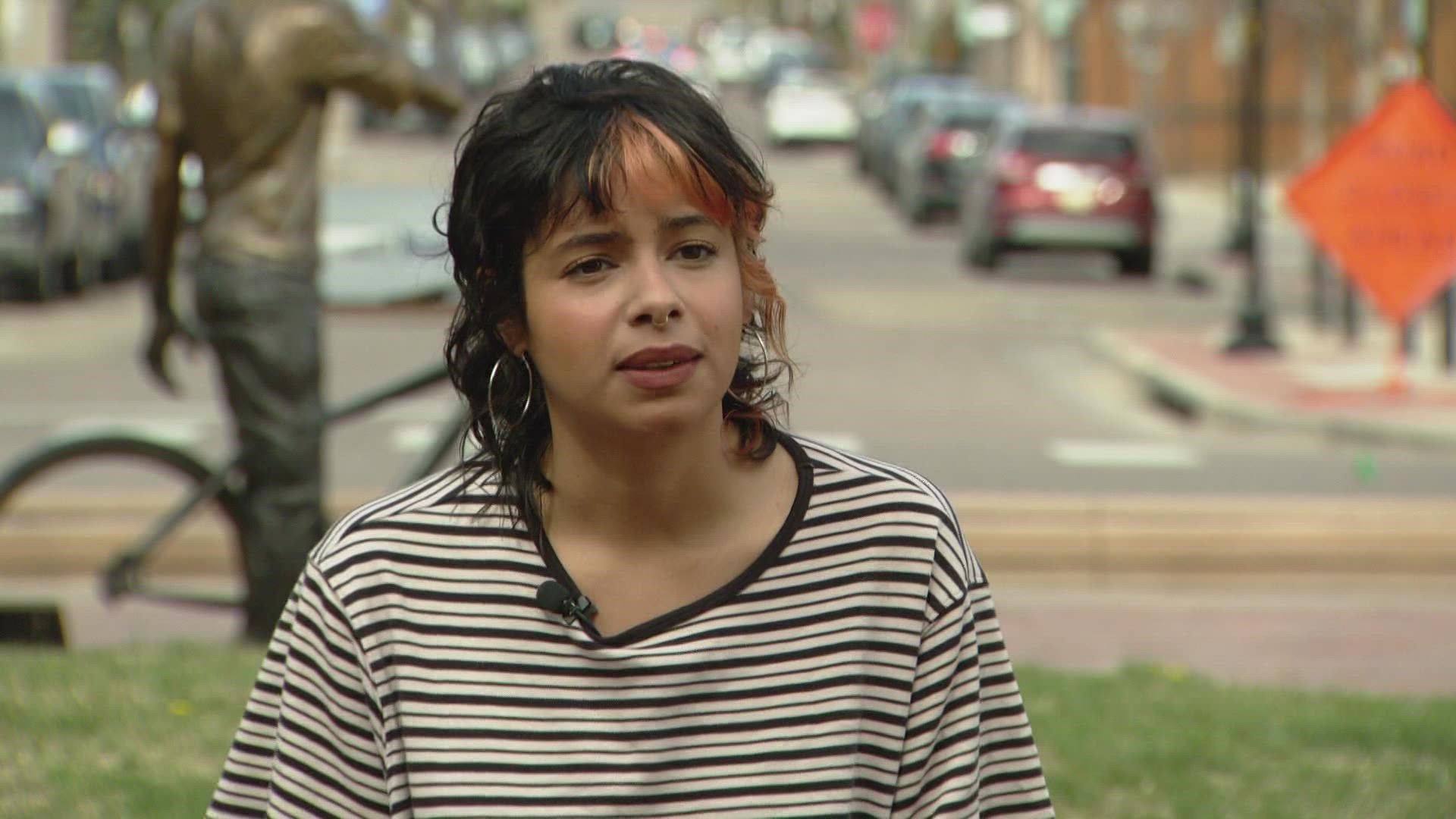DENVER — When it comes to finding a place to live in Colorado, renting has become just as competitive and expensive as buying.
According to Rent.com, rent in Denver is up an average of 15% over last year. With rental rates jumping higher than the rate of inflation, renters are being stretched thin and priced out.
“Immediately, it was just a feeling of panic because the money just doesn’t exist,” Gabriela Reis said.
During the COVID-19 pandemic, Reis and her fiancé moved to the Denver area and were loving life, until the realities of living in a popular metro area set in.
Her landlord increased the rent on their place in Thornton from $1,600 a month to $2,500 – an increase of $900, or 56%.
“We were just at a loss," she said. "There was nothing that we could do. It just happens, and [in] such a short amount of time. The pressure‘s applied, and then it’s like you have to act fast, and it’s overwhelming.”
In the end, Reis was forced to move farther north. Her story is a dime a dozen.

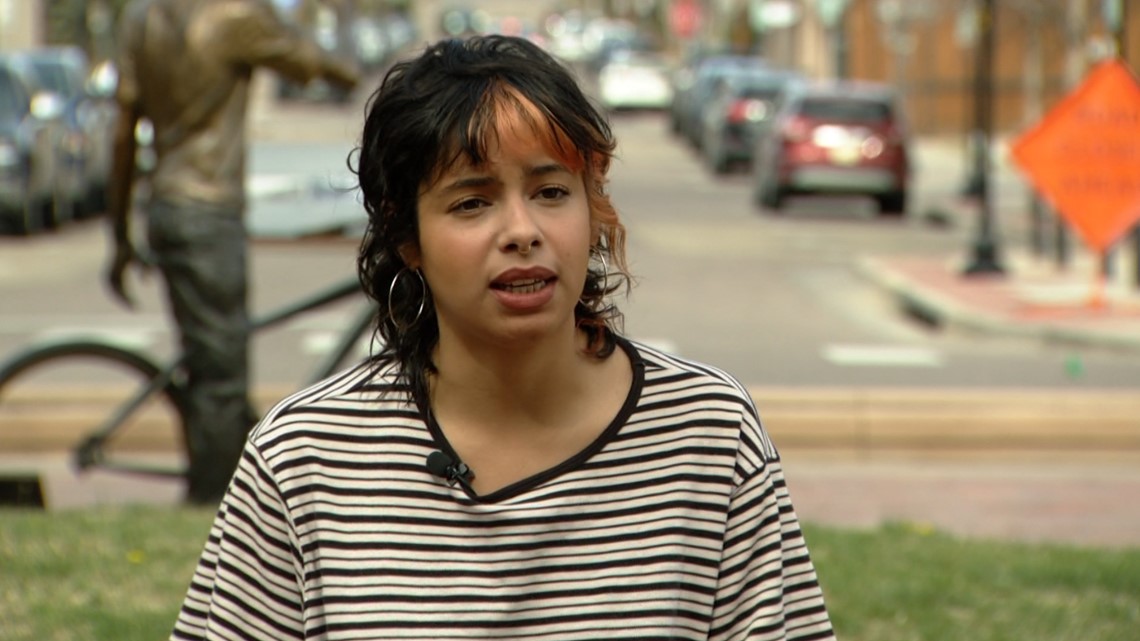
'There aren't enough rentals'
“If there are people willing to spend the $900 bucks more, than that won’t correct until there are people that aren’t willing to spend more," said Kelly Moye, a spokesperson for the Colorado Association of Realtors. "Right now, they’re willing to spend more, and there aren’t enough rentals."
Skyrocketing rent is a matter of inventory and demand. Denver and the Front Range are stuck in a lack-of-inventory issue, Moye said.
“You just have so many people, especially young people, who want to move here, that we just don’t have enough apartments and townhomes and rentals to cover them,” she said.
Jennifer Fox and Caleb Dickinson own Fox Property Management in Louisville, one of the largest housing providers in the state.
“Our occupancy rate is at 96%," Dickinson said. "So we don’t have vacant properties. When we put something out there gets rented. So, it’s not just that the prices are high. It’s that people are having to pay those prices in order to live in these homes.”
A quick sweep of Zillow will make your head spin.
Rent.com says the average price for a studio in the Lower Highlands neighborhood averages $2,163 per month.

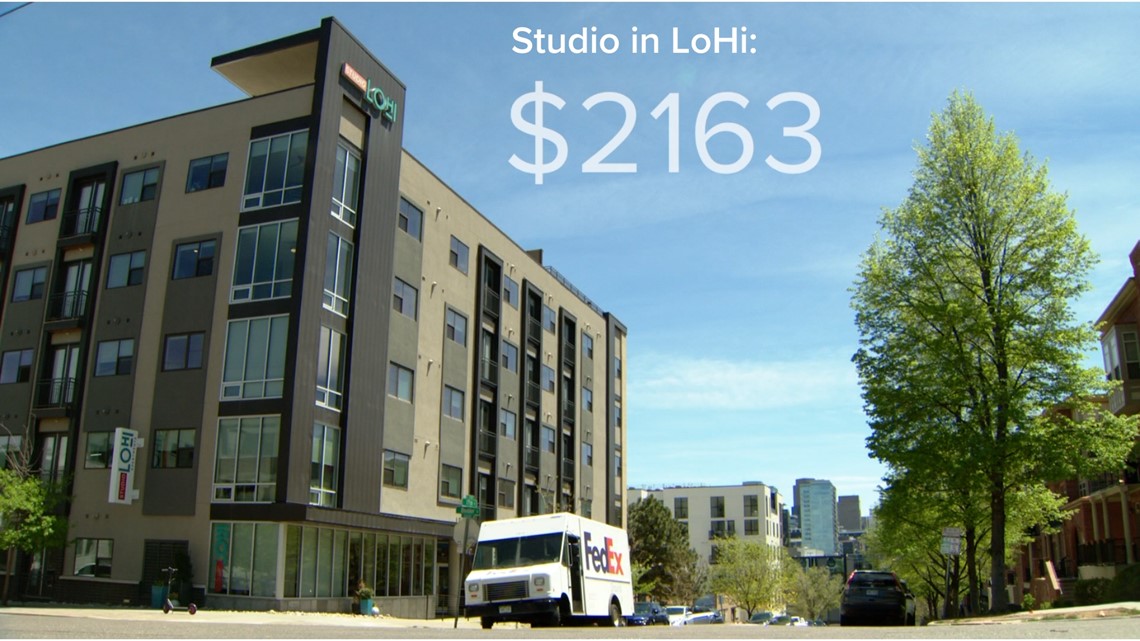
It’s $2,598 in Cherry Creek.

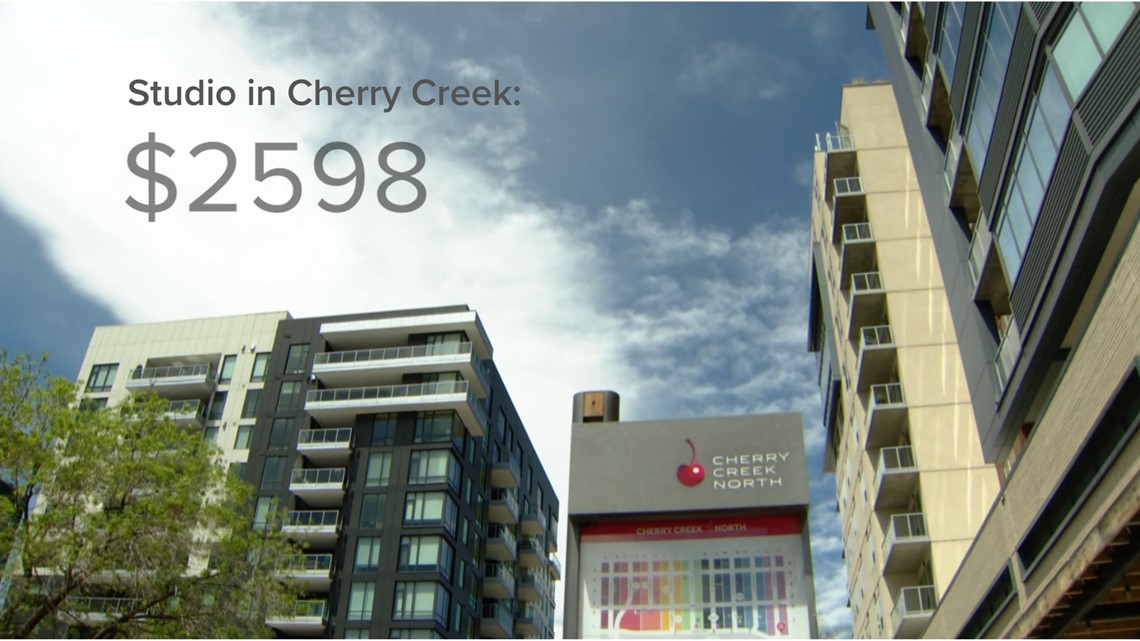
A studio will run you $3,083 in Lower Downtown.

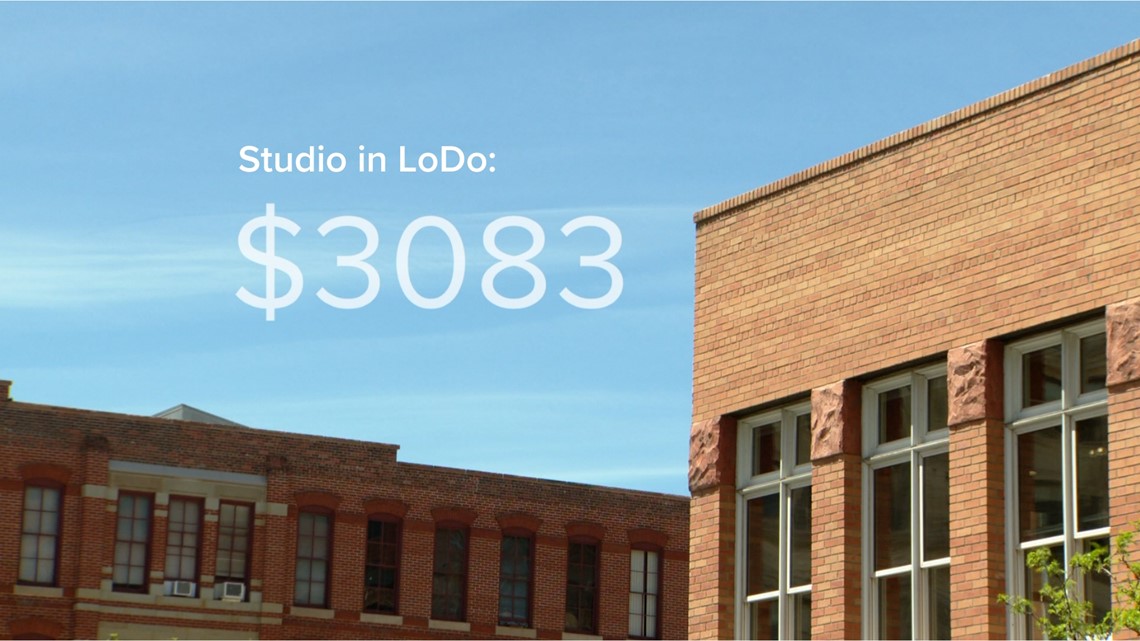
Even neighborhoods deemed more affordable in the past have hit all-time highs. The vacancy rate in Denver is just over 4%.
“People are looking at inflated prices that are put out on the market, and they are – in good sense – anybody will look at it and say my place must also be worth that, so it is just naturally inflating the rental market,” Fox said.
'There isn't a support structure'
Rent generally increases about 3% to 5% each year, Dickinson said. In 2022, he and Fox have seen rents increase by 20% to 40%. Or, like in Reis' case, over 50%.
“People who are living in their homes just paying their rent, taking care of their space, are going to be evicted by rent increases because landlords know they can get higher rent, and there isn’t a support structure for a renter who just got their rent raised,” Dickinson said.
> Below: Watch an extended interview with Jennifer Fox and Caleb Dickinson, of Fox Property Management:
If someone manages to find a new place they can afford, they still face competition to land the lease.
“It’s incredibly competitive," Moye said. "It’s just like if you’re buying homes. Most renters are dealing with competing with 50 to 60 other applicants."
Moye said she recently had 64 applicants in less than 48 hours for a vacant Westminster townhouse.
“I got a gift on my front porch of a really lovely basket, which was very nice," Moye said. "I’ve got all sorts of letters and people trying to reach out to me personally, just to make the connection, to say please look at me, look at me. The applicants were overqualified for this place. The amount of interest was really unbelievable.”
Inflation is driving a market that might not correct anytime soon. When landlords see their costs are going up, they increase their rent, Dickinson said.
“But that puts 100% of the inflation cost on the tenant who is not necessarily in the best position to take on all that inflation,” he said. “I think we set a new bar, and it’s likely going to be hard to come down from that bar. I’m not sure it’s necessarily going to keep going up, but I think a correction may not be likely.”
>Below: Watch an interview with DU associated professor Ron Throupe on his new report on Denver rent increases:
SUGGESTED VIDEOS: Colorado real estate market

